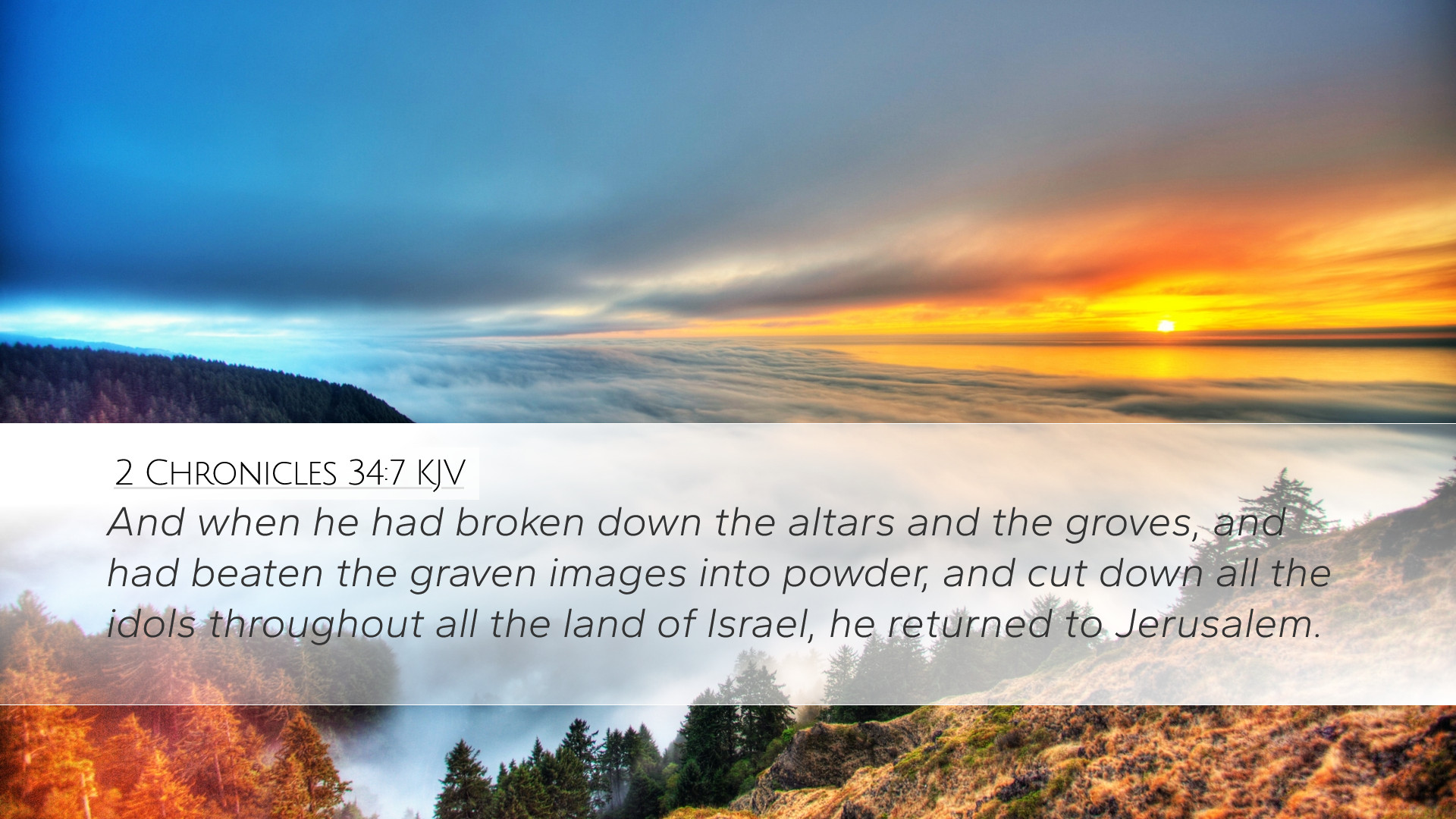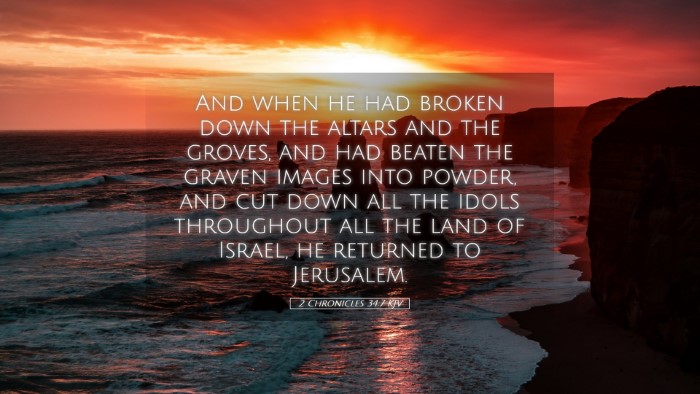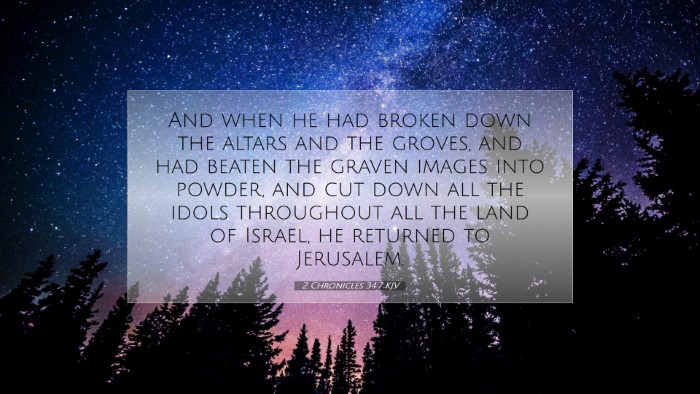Commentary on 2 Chronicles 34:7
Bible Verse: “And when he had broken down the altars and the groves, and had beaten the graven images into powder, and cut down all the idols throughout all the land of Israel, he returned to Jerusalem.”
Contextual Background
This verse falls within the narrative of King Josiah's reign, which is marked by significant religious reforms aimed at restoring the worship of Yahweh. His actions serve as a pivotal moment in the history of Judah, reflecting a profound commitment to the covenant and the prescribed worship of the Lord. Commentators highlight that Josiah's actions transpired after a long period of idolatry and neglect of the Temple, which had fallen into disrepair due to prior kings' abominations.
Theological Insights
The verse encapsulates the theme of purification and restoration. Josiah's vigorous actions demonstrate a clear repudiation of idolatry, which had infiltrated the worship practices amongst the people of Judah. According to Albert Barnes, there is an emphasis on the severity of Josiah's measures—he did not merely remove the idols but also "beat them into powder," indicating a complete and thorough eradication of false worship practices.
The Nature of Josiah’s Reforms
As noted by Matthew Henry, reform in Josiah's time is characterized by extraordinary zeal. His efforts were not limited to mere superficial changes; rather, they involved a heart-driven pursuit of holiness that compelled him to act decisively against the symbols of idolatry throughout Israel. This zeal encapsulates a broader principle that leaders in faith must be willing to act boldly against sin and compromise.
Symbolism of Idolatry
Adam Clarke provides valuable insights into the significance of the "groves" and "graven images." In ancient Israel, these were often associated with fertility cults and pagan worship, serving as barriers to authentic worship. The cutting down of the groves symbolically represents the removal of false sources of life and sustenance that detracted from reliance on God. Therefore, Josiah's actions can be understood as not just physical destruction but a call to spiritual renewal.
Applications for Today
The relevance of Josiah’s actions and the consequences of sin remain pressing today. As Henry suggests, the church and its leaders must engage in a similar fervor to remove elements that hinder genuine worship. Just as Josiah dismantled the altars, contemporary believers are challenged to identify and renounce the ‘idols’ that distract them from their devotion to God.
Spiritual Vigilance
The destruction of idols serves as a metaphor for the believer's internal struggle against sin and compromise. The commentary encourages modern readers to engage in self-examination of what idols may exist within their lives, whether they be materialism, pride, or any form of distraction that pulls individuals away from their relationship with God.
Leadership and Reform
Josiah’s example serves as an exhortation for leaders in the church and community to embody a spirit of reform. Barnes points out that second to Josiah's zeal was his commitment to reinstitute true worship practices and restore proper reverence to the Temple. This reflects an essential truth that leaders must guide their communities back to the core tenets of faith amidst cultural distractions.
Conclusion
In conclusion, 2 Chronicles 34:7 presents a powerful narrative of repentance, restoration, and the relentless pursuit of holiness. The combined insights from prominent biblical scholars remind us that true reform involves both external actions and internal commitment. The proactive steps taken by King Josiah are an enduring example for all believers, prompting reflection on the nature of worship and devotion in the context of faith's renewal.
As we partake in this reflection, let us be encouraged to pursue holiness by dismantling the idols present in our lives, leading ourselves and others towards a more profound relationship with God.


